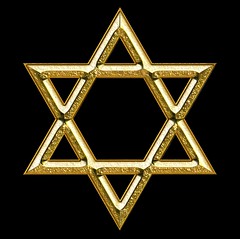| 5686148459 | Bhagavad Gita | A great Hindu epic text, part of the much larger Mahabharata, which affirms the performance of caste duties as a path to religious liberation. (pron. BAH-gah-vahd GHEE-tah) |  | 0 |
| 5686148460 | Confucianism | The Chinese philosophy first enunciated by Confucius, advocating the moral example of superiors as the key element of social order. |  | 1 |
| 5686148461 | Daoism | A Chinese philosophy/popular religion that advocates simplicity and understanding of the world of nature, founded by the legendary figure Laozi. (pron. dow-ism) |  | 2 |
| 5686148462 | Greek rationalism | A secularizing system of scientific and philosophic thought that developed in classical Greece in the period 600 to 300 B.C.E.; it emphasized the power of education and human reason to understand the world in nonreligious terms. |  | 3 |
| 5686148463 | Jesus of Nazareth | The prophet/god of Christianity (ca. 4 B.C.E.-ca. 30 C.E.). |  | 4 |
| 5686148464 | Judaism | The monotheistic religion developed by the Hebrews, emphasising a sole personal God (Yahweh) with concerns for social justice. |  | 5 |
| 5686148465 | Legalism | A Chinese philosophy distinguished by an adherence to clear laws with vigorous punishments. |  | 6 |
| 5686148466 | Mahayana | "Great Vehicle," the popular development of Buddhism in the early centuries of the Common Era, which gives a much greater role to supernatural beings and proved to be more popular than original (Theravada) Buddhism. (pron. mah-hah-YAH-nah) |  | 7 |
| 5686148467 | moksha | In Hindu belief, liberation from separate existence and union with Brahman. (pron. mokeshuh) |  | 8 |
| 5686148468 | nirvana | The end goal of Buddhism, in which individual identity is "extinguished" into a state of serenity and great compassion. (pron. neer-VAH-nah) |  | 9 |
| 5686148469 | Saint Paul | The first great popularizer of Christianity (10-65 C.E.). |  | 10 |
| 5686148470 | Siddhartha Gautama (the Buddha) | The Indian prince turned ascetic (ca. 566-ca. 486 B.C.E.) who founded Buddhism. (pron. sidd-ARTH-uh gow-TAHM-uh) |  | 11 |
| 5686148471 | Socrates | The first great Greek philosopher to turn rationalism toward questions of human existence (469-399 B.C.E.). |  | 12 |
| 5686148472 | Theravada | "The Teaching of the Elders," the early form of Buddhism according to which the Buddha was a wise teacher but not divine and which emphasizes practices rather than beliefs. (pron. THAIR-ah-VAH-dah) |  | 13 |
| 5686148473 | Upanishads | Indian mystical and philosophical works, written between 800 and 400 B.C.E. (pron. ooh-PAHN-ish-ahds) |  | 14 |
| 5686148474 | Vedas | The earliest religious texts of India, a collection of ancient poems, hymns, and rituals that were transmitted orally before being written down ca. 600 B.C.E. (pron.VAY-dahs) |  | 15 |
| 5686148475 | Zoroastrianism | Persian monotheistic religion founded by the prophet Zarathustra. (pron. zor-oh-AST-ree-an-ism) |  | 16 |
AP World History Chapter 4 Vocabulary Flashcards
Primary tabs
Need Help?
We hope your visit has been a productive one. If you're having any problems, or would like to give some feedback, we'd love to hear from you.
For general help, questions, and suggestions, try our dedicated support forums.
If you need to contact the Course-Notes.Org web experience team, please use our contact form.
Need Notes?
While we strive to provide the most comprehensive notes for as many high school textbooks as possible, there are certainly going to be some that we miss. Drop us a note and let us know which textbooks you need. Be sure to include which edition of the textbook you are using! If we see enough demand, we'll do whatever we can to get those notes up on the site for you!

